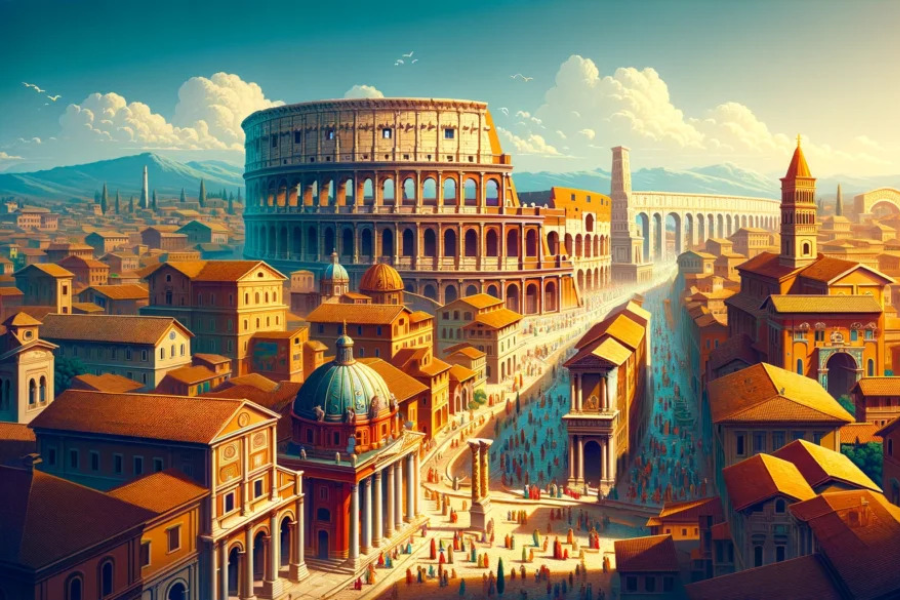Antiquità: A Journey into Early Civilization
Antiquità, the vast period preceding the Middle Ages, laid the foundation for the modern world. Spanning from the dawn of recorded history to the fall of the Roman Empire in the fifth century AD, this era saw the birth and transformation of remarkable civilizations, breakthroughs in the arts and sciences, and the development of philosophies and religions that continue to shape contemporary society. In this exploration of antiquità, we uncover the defining civilizations, their contributions, and the enduring legacies they left behind.
The Origins of Civilization: Mesopotamia and Egypt
The Fertile Crescent in Mesopotamia, nestled between the Tigris and Euphrates rivers, is often referred to as the cradle of civilization. Around 3500 BC, the Sumerians established one of the earliest advanced societies here. They introduced essential innovations, including the earliest form of writing (cuneiform), the wheel, and the first urban centers. Their legal codes, like the Code of Ur-Nammu and later Hammurabi’s Code from the Babylonian Empire, laid the groundwork for modern legal systems.
Simultaneously, in the Nile Valley, the ancient Egyptians were constructing their own civilization. Known for their monumental architecture—such as the Pyramids of Giza and the temples of Karnak and Luxor—the Egyptians excelled in mathematics, medicine, and engineering. Their practice of mummification, which required advanced anatomical knowledge, is particularly notable. Egyptian art and hieroglyphics provide a rich visual and written account of their culture and beliefs.
The Birth of Philosophy: Ancient Greece
Further west, ancient Greece is perhaps the most celebrated civilization of antiquità due to its lasting contributions to philosophy, science, and the arts. The Greek city-states, especially Athens, were centers of intellectual activity. Thinkers like Socrates, Plato, and Aristotle established philosophical principles that continue to underpin Western thought. Socratic questioning, Platonic ideals, and Aristotelian logic remain foundational in philosophy and education.
Beyond philosophy, Greek advancements in mathematics and science were profound. Figures such as Pythagoras, Euclid, and Archimedes made groundbreaking contributions that are still studied today. Greek theories in astronomy, including the heliocentric hypothesis of Aristarchus, anticipated later scientific discoveries.
Greek culture also celebrated human achievement through literature and the arts. Epic poets like Homer, dramatists such as Sophocles and Euripides, and historians like Herodotus and Thucydides left an indelible mark on global literature. The classical principles of beauty and proportion in Greek sculpture and architecture influenced art for centuries.
The Power of Rome
The rise of Rome marked the height of ancient civilization, transforming it into a complex empire that dominated the Mediterranean for centuries. Founded in 753 BC, Rome expanded from a modest city-state into a vast empire that encompassed much of Europe, North Africa, and the Near East. The Roman Republic—and later the Empire—implemented a system of governance that has significantly influenced political institutions and thought throughout history.
Roman law, codified in the Twelve Tables and later Justinian’s Corpus Juris Civilis, is the foundation for many contemporary legal systems. Roman engineering achievements, including aqueducts, roads, and the Colosseum, set new standards in construction. Their innovations in concrete enabled the creation of large, enduring public structures.
Culturally, Rome absorbed and adapted the practices of conquered civilizations, particularly Greece. Roman literature, art, and architecture were influenced by Greek models but evolved their own distinctive styles. For example, the poet Virgil drew from Homer yet created a uniquely Roman epic in The Aeneid, aligning with Roman ideals and values.
The Eastern Influence: China and India
While Mediterranean civilizations often dominate discussions of antiquità, significant advances were also occurring in the Far East. Ancient China, under various dynasties, made remarkable contributions to human development. The Shang Dynasty (c. 1600–1046 BC) saw the invention of Chinese writing, bronze casting, and early forms of religious practice.
The Zhou Dynasty (1046–256 BC) introduced the Mandate of Heaven, a political doctrine justifying the ruler’s authority as divinely sanctioned. This period also saw the rise of Chinese philosophies, such as Confucianism and Daoism, which offered deep insights into ethics, governance, and nature. The Qin Dynasty (221–206 BC) unified China, standardizing writing, currency, and measurements, and initiated the construction of the Great Wall.
In India, the Indus Valley Civilization (c. 3300–1300 BC) was one of the world’s earliest urban cultures, known for its advanced city planning and intricate drainage systems. The Vedic period (c. 1500–500 BC) laid the groundwork for Hinduism and established a social structure that would shape Indian society for centuries.
The Maurya (c. 322–185 BC) and Gupta (c. 320–550 AD) empires represent high points in ancient Indian history. Under Ashoka the Great, the Maurya Empire embraced Buddhism, spreading its teachings across Asia. The Gupta period is often hailed as a golden age of Indian culture, marked by achievements in science, mathematics, astronomy, and literature.
The Lasting Impact of Antiquità
The legacy of antiquità is deeply woven into the fabric of modern society. Political ideals of democracy and republicanism, first practiced in Athens and Rome, continue to inform present-day governance. Greek philosophical inquiries laid the foundation for Western intellectual culture, while Roman law remains the basis for legal systems in many countries.
Scientific and technological advancements from ancient civilizations set the stage for modern disciplines. The mathematical theories developed by the Greeks and Indians, the Romans’ architectural innovations, and the astronomical observations made by the Chinese all contribute to contemporary progress.
Culturally, the literary and artistic accomplishments of antiquità remain inspirational. The epics of Homer, the tragedies of Sophocles, and the poetry of Virgil hold an enduring place in the literary canon. The architectural marvels of ancient Egypt, Greece, and Rome still stand as symbols of human ingenuity and aesthetic mastery.
Conclusion
Antiquità was a period of extraordinary human achievement and discovery. The civilizations that rose and fell during this era laid the groundwork for many aspects of modern life. From legal systems and political structures to scientific principles and artistic expressions, the contributions of ancient societies continue to resonate. Reflecting on antiquità offers a greater appreciation for the enduring legacy of our ancestors and the remarkable human journey across time.
Stay in the know with the latest news and updates on easytrendz!






